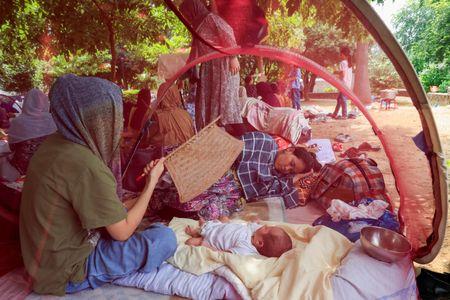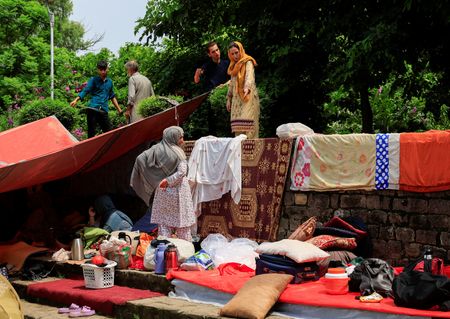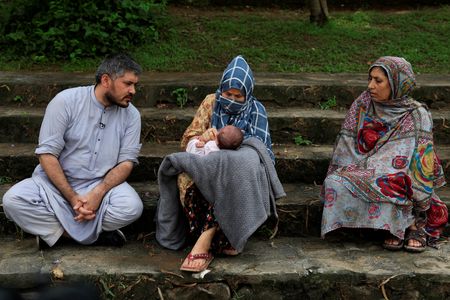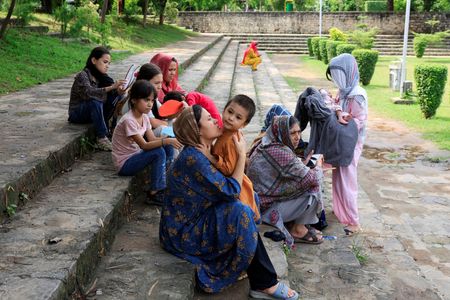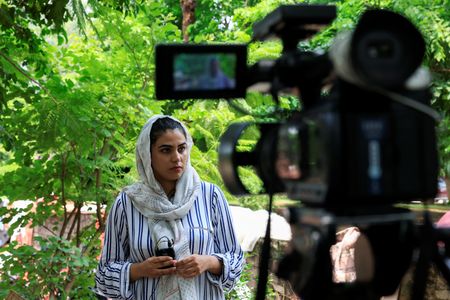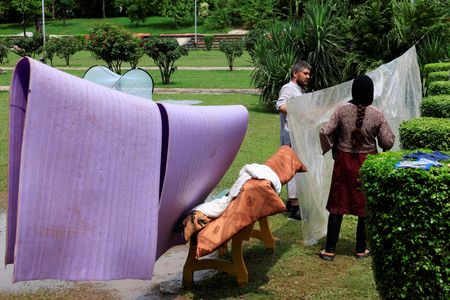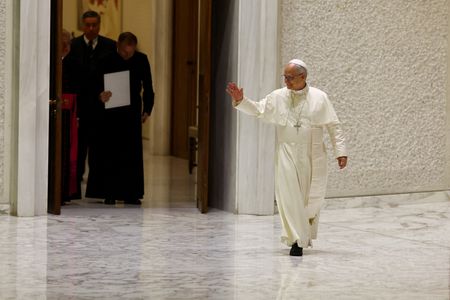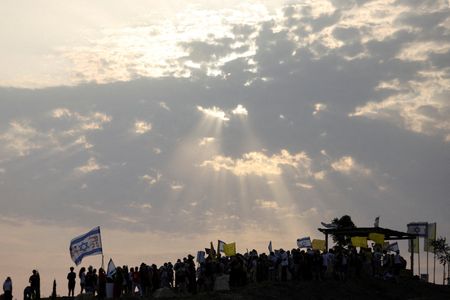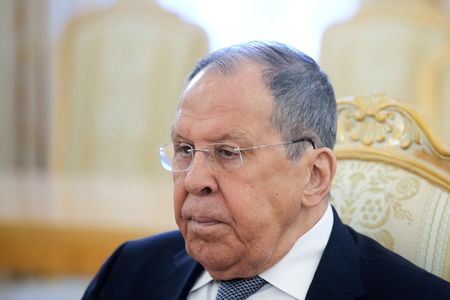By Ariba Shahid
ISLAMABAD (Reuters) -Evicted from their homes and huddling under plastic sheets after heavy rains, Afghan refugees in a park near government offices in Islamabad said they had nowhere to go as Pakistan pressures landlords to expel documented families.
Among them is Samia, 26, from Afghanistan’s Hazara minority, a Shi’ite community long persecuted at home, who gave birth just three weeks ago.
“I came here when my baby was seven days old, and now it has been 22 days … we have no food, and my baby was sick but there was no doctor,” she said, wearing damp clothes and shoes caked in mud as she cuddled her son, Daniyal whose body bore a rash.
The United Nations says Pakistan has begun deporting documented Afghans before a Sept. 1 deadline that could force more than a million to leave.
The action comes despite about 1.3 million holding refugee registration documents, while 750,000 have Afghan identity cards issued in Pakistan.
Samia now lives on the park’s wet ground, among 200 families who cook, sleep and dry their belongings there after nights of rain. Plastic sheets serve as makeshift shelters, and children and parents spend their days battling mud, sun and hunger.
Families pool the little money they have to buy potatoes or squash, cooking small portions over open fires to share with several people. The women use the washroom in a nearby mosque.
Sahera Babur, 23, another member of the Hazara community, who is nine months pregnant, spoke with tears in her eyes.
“If my baby is born in this situation, what will happen to me and my child?” she said, adding that police had told her landlord to evict her family because they were Afghan.
Dozens of policemen stood at the edge of the park in Pakistan’s capital when Reuters visited, watching the camp. Refugees said officers regularly told them to leave or risk being taken away.
Police denied harassment. Jawad Tariq, a deputy inspector general, said refugees were only asked to leave voluntarily or move to holding centres.
Pakistan’s information ministry did not respond to a text message requesting comment.
Refugees say they have been left in limbo for years. “UNHCR gave us promises … but they have not visited us,” said Dewa Hotak, 22, an Afghan and former television journalist.
The agency’s spokesperson in Pakistan, Qaiser Khan Afridi, called the situation “precarious”, adding that Afghans unable to regularise their stay faced arrest, deportation and homelessness.
He said the agency was pressing Islamabad to create a registration mechanism and reiterated its call not to return people to a country where their lives may be in danger.
Many at the camp say they cannot go back to Afghanistan because of the risks.
Ahmad Zia Faiz, a former adviser in Afghanistan’s interior ministry, said he feared reprisals for serving in the previous government, adding, “If we return to Afghanistan, there is a risk of being killed.”
Pakistan, host to millions of Afghans since the 1979 Soviet invasion, has stepped up expulsions under a 2023 crackdown, blaming Afghans for crime and militancy, charges rejected by Kabul.
Neighbouring Iran’s plan to deport more than a million more adds to a refugee return crisis aid groups call the biggest since the Taliban takeover in 2021.
The green grass and serene vistas in Islamabad’s park stand in stark contrast to the lives of those camping there. “My message to the world is to see our situation,” Samia said, clutching her newborn.
(Reporting by Ariba Shahid in Islamabad; Additional reporting by Muhammmad Yunus Yawar; Editing by Clarence Fernandez)

